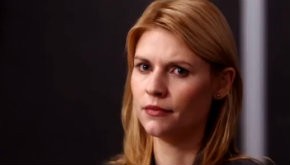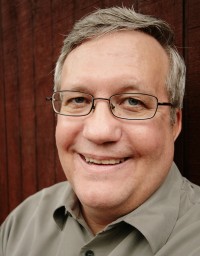Homeland insecurity

The Showtime series Homeland, which recently ended its second season, has been one of the most acclaimed programs on television. In its first season it won Emmys for best drama, best actress and best actor, and it has won the Golden Globe Award for best TV drama series two years in a row. Its most famous fan is President Obama. (Spoilers follow.)
The main figure is marine sergeant Nicholas Brody (portrayed by Damian Lewis), who was captured by al-Qaeda during the Iraq war and was a POW for eight years. He suffered torture and grueling psychological manipulation. After years of such abuse, he was “befriended” by al-Qaeda leader Abu Nazir and moved into his home. In the process, Brody becomes a Muslim and also comes to love Nazir’s family, particularly his son Issa (which, incidentally, is “Jesus” in Arabic). In a U.S. drone strike, Issa is killed. Brody is distraught and moved to sympathize with his captors.
Read our latest issue or browse back issues.
When Brody is released he returns to America as a war hero. His popularity is so great that he is elected to Congress. But the CIA is suspicious, especially agent Carrie Mathison (Claire Danes).
Carrie and some fellow agents suspect that Brody has been “turned” and is an ally of al-Qaeda. Much of the first season concerns their investigations into Brody. Meanwhile, we see Brody on occasion hiding in his garage praying as a Muslim. Viewers learn that Brody is indeed still in contact with Abu Nazir.
Eventually only Carrie remains convinced—despite an ill-advised romantic entanglement with Brody—that he is an al-Qaeda agent. As she tries to demonstrate this, she becomes manic and ends up hospitalized.
Brody, in the meantime, is part of a terrorist scheme to kill several U.S. officials, including the vice president, who is especially hated by Nazir because he denied the drone strike that killed Nazir’s son. Brody straps on a suicide vest but ends up not triggering the bomb when he gets a cell phone call from his teenaged daughter, which reminds him of his love for his own family and gives him reason to live. Thus ends season one.
Season two opens with Carrie out of the hospital and recovering from her breakdown. She is apparently done with the CIA. She’s teaching English as a second language and spending time with her father and sister. But soon enough the agency needs her help with a Beirut contact she cultivated years before. She goes back to work for the CIA on a single-assignment basis, but one thing leads to another until she’s all the way back in.
Carrie and her colleagues recover direct evidence that Brody is involved with al-Qaeda. They arrest him and interrogate him, with Carrie being the soft touch and getting Brody to admit his involvement. They turn Brody and plan to use him to capture Abu Nazir.
Brody cooperates, at least apparently. Then Carrie and Brody reignite their affair, in what many critics consider a weak element of season two. The season ends with a bombing that kills 200 people at the funeral of the vice president (whom Brody has actually murdered). The bomb goes off in Brody’s car, but Carrie is convinced he’s innocent and spirits him out of the country, vowing to clear his name. So season two ends with questions. Is Brody innocent of the bombing? Will Carrie clear his name? Will the two lovers be reunited once and for all?
But Homeland also raises some grave real-world questions. It points to the U.S. use of drone attacks, used regularly by the Obama administration. These attacks have apparently been effective in taking out some terrorist leaders. But what about the many innocents also killed (as “collateral damage”)? And do drone attacks, in killing innocents, breed more terrorists? There has been no real debate about the morality of using drones (and certainly there was none during the recent presidential campaigns).
Homeland also raises questions about the perceptions and treatment of Islam as a religious faith. In the drama, Brody’s own prayer is often depicted as something beautiful and serene. Yet Brody is at best an ambiguous character, and his prayer definitely does not produce peaceableness and compassion for perceived enemies. Can we imagine (and depict) Islam as something deeply civilizing and enriching, as do the vast majority of its practitioners?
Finally, Homeland raises questions about our ability to understand the Islamic world in its complexity. Salon writer Laila Al-Arian notes that the drama conflates “the goals and intentions of various Arab, Middle Eastern and Islamist groups from al-Qaeda to Hezbollah, without providing any context about their backgrounds or motivations. In the real world, the animosity and mistrust between the Sunni extremist al-Qaeda and Shi‘a Hezbollah is so great that it’s highly unlikely they would ever cooperate. But in the world of Homeland, Hezbollah, which has never threatened an attack on U.S. soil, is not only a close ally of Abu Nazir, but is able to deploy heavily armed commando units to attack a CIA team in rural Pennsylvania.”
All this is to explain why I’ll be watching season three—with a critical mindset and plenty of questions.






